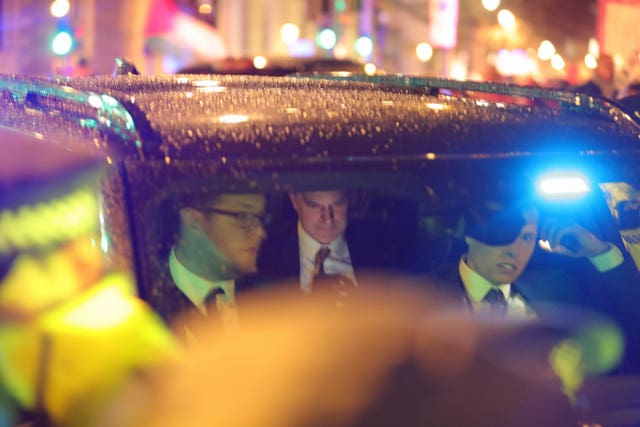Detainees facing deportation still have no idea whether a charter flight to Jamaica organised by the Home Office will take off as planned with just hours to go before the scheduled departure.
A flight carrying around 50 people had been due to take off at 6.30am on Tuesday, but a last minute legal challenge by human rights groups means many of the intended passengers cannot yet be removed.
On Monday evening the Home Office was ordered not to deport anyone held in two detention centres close to Heathrow – Colnbrooke and Harmondsworth – amid concerns mobile phone outages had prevented access to legal advice.
Lady Justice Simler said those detainees should not be removed unless the Home Office is satisfied they “had access to a functioning, non-O2 Sim card on or before February 3”.
The charity argued that some of the detainees at the two Heathrow centres still do not have a functioning mobile phone, following issues with an O2 phone mast in the area.
But the order does not apply to Brook House detention centre, which is close to Gatwick, although campaigners say detainees have experienced similar problems with communication networks.
DEPORTATIONS LATEST: We’re hearing people detained at Brook House have evidence about phone signal outage & access to justice problems. We understand they want to make legal representations by are being stopped by guards. Gov MUST cancel this flight immediately #Jamaica50
— Detention Action (@DetentionAction) February 10, 2020
The Home Office refused to comment on the number of detainees it could still deport without being in breach of the order, or whether the flight would take off as planned.
It said in a statement: “The planned charter flight to Jamaica is specifically for deporting foreign national offenders.
“Those detained for removal include people convicted of manslaughter, rape, violent crime and dealing Class-A drugs.
“We are urgently asking the judge to reconsider their ruling and it would be inappropriate to comment further whilst legal proceedings are ongoing.”
A spokesman for Detention Action said they were also in the dark as to whether the flight would take off.
According to Detention Action, around 56 people are being held in the two Heathrow detention centres.
It is not known exactly how many people are held in Brook House.
The planned flight sparked a protest outside Downing Street on Monday evening, which ended up with demonstrators blocking the roads around Parliament Square.
At one point, the protesters managed to box in a ministerial car carrying Northern Ireland Secretary Julian Smith.

There were heated scenes in the House of Commons on Monday afternoon as Labour MPs put in an urgent question on the matter for the Government.
There were shouts of “shame” as Home Secretary Priti Patel left the chamber, leaving junior minister Kevin Foster to respond.
Mr Foster insisted no British nationals were on the flight and said deportation rules were applied on “the criminality, not the nationality of the offender”, adding: “The foreign nationals on that flight have been sentenced to a total of 300 years in prison.
“The offences are, as we said, relate to everything from sex offending, serious drug trafficking offences, violent offences, firearms offences.”
Mr Foster was repeatedly asked by MPs for more specific information on the nature of offences committed by those on the flight but refused to provide more detail.
The planned flight follows news of a leaked report commissioned by ministers in the wake of the Windrush scandal which warned the Government that the deportation policy should be reconsidered in all but the “most severe cases”.
Written in June 2019, the document seen by PA said: “Government should review its policy and approach to FNOs (foreign national offenders), if necessary through primary legislation.
“It should consider ending all deportations of FNOs where they arrived in the UK as children (say before age of 13). Alternatively – deportation should only be considered in the most severe cases.”
A number of the people due on the flight are thought to have been convicted of one-time drug offences when they were young and have lived in the UK “for most of their lives”.






